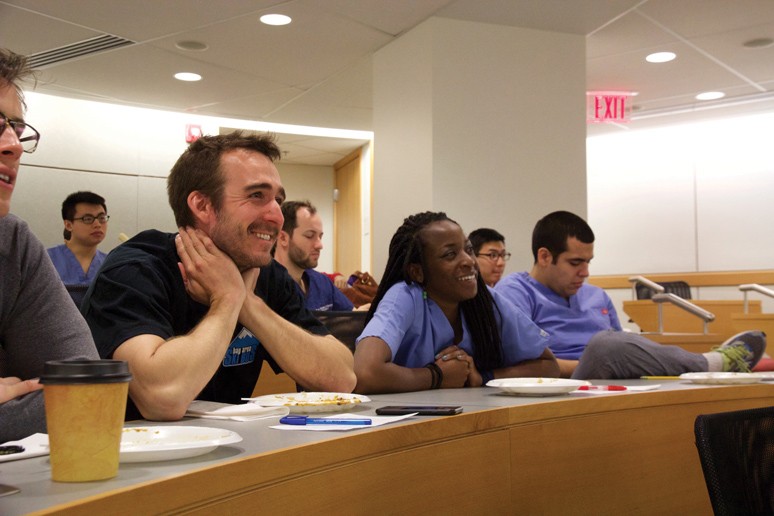Med students get to know their elected officials.
When Aaron Shapiro MD ’18 moved to Providence before his first year at Alpert Medical School, he did many of the usual things: unpacked, learned the streets, changed his official state of residency. When he realized a local election was fast approaching, Shapiro registered to vote, read up on the issues, and set up a meeting with his representative to clarify details.
Shapiro grew up in Washington, DC, and says that although he was only peripherally involved in politics there, he tried to be informed and form relationships with his local elected officials. So he says he was “shocked” by how little people outside of the nation’s capital engage in politics. “Political speakers were always around me growing up, and I don’t think I realized … until I moved out of DC that most people don’t talk about politics with their local elected officials,” Shapiro says. “And that didn’t sit well with me.”
His culture shock led him to found an organization, Citizen Physicians, with 15 other medical students. “[Citizen Physicians] is nonissue-based and nonpartisan,” Shapiro says. “We want to get future health care providers more engaged in politics and more competent and comfortable in engaging in politics.”
Citizen Physicians has hosted several events, including a “nuts and bolts” training on the basics of civic engagement, a lecture by state Sen. Chris Ottiano on the importance of doctor participation in politics, and a meet and greet that was attended by numerous political staffers and community members, 43 medical students, and 12 Rhode Island elected officials, including Secretary of State Nellie Gorbea. “I expected politicians to show up, shake a few hands, stay for five minutes, and then leave, but a lot of people stayed the full two hours,” Shapiro says.
The group also aims to increase voter registration, and provides voter registration cards at most events. At the orientation for new medical students in August, Citizen Physicians helped 24 of Providence’s newest residents register to vote. “Even if we’re only here for the four years that we’re in medical school, we’re here now, so we should be engaged in what’s happening now,” Shapiro says.
“It’s really beneficial that Rhode Island is a small state, so that everyone has the ability to engage in these processes,” he adds. “It’s just a matter of making sure that everyone knows how to access [their elected officials]so that they can actually effect change.”




